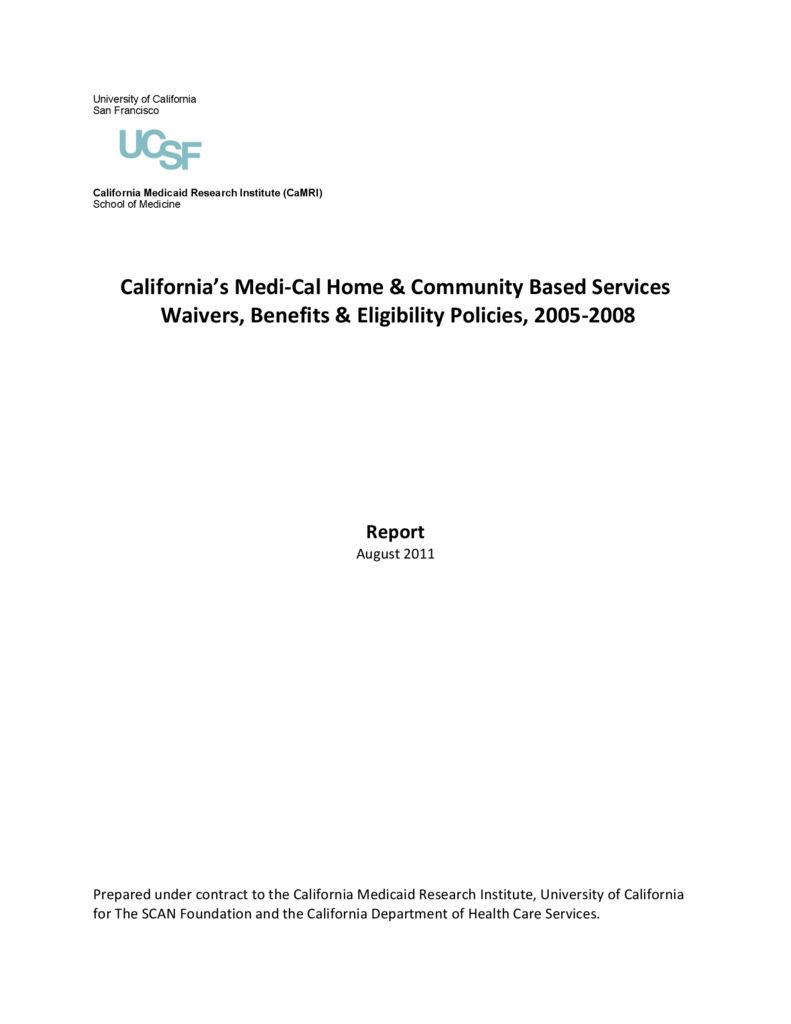CAMRI: California’s Medi-Cal Home & Community Based Services Waivers, Benefits & Eligibility Policies, 2005–2008
summary
The SCAN Foundation and the California Department of Health Care Services provided funding to the California Medicaid Research Institute (CaMRI) at the University of California to present analyses of the state’s home- and community-based services (HCBS), titled, “California’s Medi-Cal Home & Community Based Services Waivers, Benefits & Eligibility Policies, 2005–2008.”
Date Updated: 09/08/2011Health and long term care services and practices constitute a continuum of care, but one that is highly compartmentalized. These compartments are varyingly defined: sometimes by the setting (e.g., hospital, nursing home), sometimes by the provider (e.g., primary care physician, social worker), sometimes by body system or disease (e.g., dementia, congestive heart failure), or by severity of the conditions (e.g., disability, nursing home certifiable, terminal). Transitions between providers and/or settings are a particularly problematic aspect of compartmentalization. All of these factors contribute to sub-suboptimal delivery system effectiveness. Fragmentation of funding, with Medicare being the primary public payer for acute health care and Medicaid being the predominant public payer for long term care, some times impairs continuity of care for those dually eligible for both programs.


